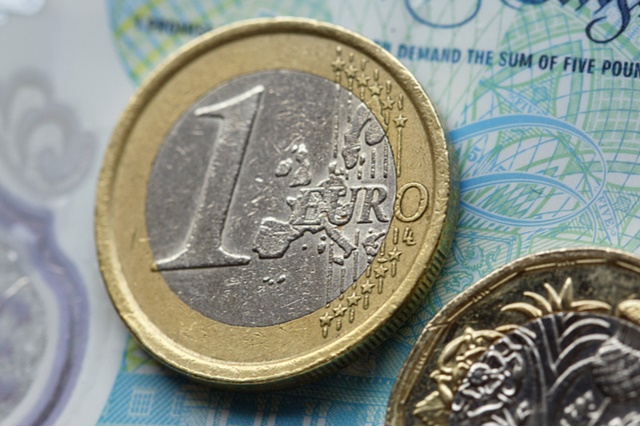GBP/EUR Exchange Rate Muted amid UK Spring Budget Anxiety
The Pound Euro (GBP/EUR) exchange rate is treading water this morning amid warnings over the potential fallout from unfunded tax cuts in the UK’s Spring Budget next week,
At the time of writing the GBP/EUR exchange rate is trading at around €1.1687, virtually unchanged from this morning’s opening rate.
Pound (GBP) Rangebound amid Tax Cut Talk
The Pound (GBP) is trapped in a narrow range this morning as economists warn Chancellor Jeremey Hunt against unfunded tax cuts in next week’s Budget.
Reports suggest Hunt is planning to cut taxes as part of a pre-election charm offensive.
However, analysts warn that any unfunded tax cuts risk a repeat of the disastrous 2022 mini-budget which plunged the Pound to historic lows.
James Smith, an economist at the bank ING, explained:
‘The savings earmarked so far are already very challenging and further savings appear unrealistic. Talk of tax cuts inevitably triggers memories of the 2022 mini budget crisis, where UK government borrowing costs rose precipitously following a package of unfunded measures designed to boost growth.’
Looking ahead, likely to drive GBP exchange rates tomorrow is an upcoming speech from Bank of England (BoE) policymaker, Catherine Mann.
As a more hawkish member of the Monetary Policy Committee (MPC) , any variation in her otherwise hawkish rhetoric may fuel further interest rate cut bets and send GBP exchange rates tumbling.
Euro (EUR) Undermined by German Consumer Confidence
The Euro (EUR) is on the back foot today as economic worries in Germany rise following the latest domestic GFK consumer confidence report.
March’s report printed at -29, coming in as expected and printing slightly higher than February’s revised figure of -29.6.
March’s figures show the consumer sentiment remains deeply negative, which could limit spending and increase the risk of Germany slipping into a recession at the start of 2024.
Rolf Buerkl, Consumer Expert at the NIM, explained:
‘There is great uncertainty among consumers. In addition to the constantly rising prices, the weaker economic forecasts for the German economy this year are likely to be another important reason for this. For the time being, Germany must continue to wait for an economic recovery.’
Able to cushion some of EUR’s losses was a speech from European Central Bank President, Chrisine Lagarde, delivered yesterday.
In her address, the central bank’s President implied that rates would ‘stay higher for longer’, ultimately lending the Euro some modest support.
Looking ahead, likely to drive EUR exchange rates tomorrow is the release of February’s economic sentiment for the Eurozone.
Economic sentiment in the Eurozone is forecast to have slightly increased, from 96.2 to 96.7 for this month’s reading. Should the data print as expected, this may aid the common currency in mid-week trade.


Comments are closed.